SUSTAINABLE DEVELOPMENT GOALS (SDG)

Libraries provide opportunities for people to improve their own lives and support informed decision-making. Mobile libraries make books, services, and internet access available in rural and remote communities, providing opportunities to people that would otherwise be isolated.

Agricultural libraries provide access to research and data on crops, market information, and farming methods that help develop resilient, sustainable produce. Public and community libraries also promote literacy, provide ICT training, access to information in local languages, and a gateway to government services and funding for rural communities, as well as fostering partnerships to support local development.

Medical libraries and hospital libraries provide access to medical research that supports improved clinical and public health outcomes. Public access to health information in all libraries help people to make better lifestyle choices and to stay healthy. Public libraries have a key role in providing health information to vulnerable groups such as new immigrants and people experiencing homelessness. Services include: accessing reliable health information, developing health literacy skills, providing help in researching and acquiring appropriate health insurance, and organising and participating in first aid training.

Libraries are at the heart of schools, universities and colleges in every country around the world. All libraries support literacy programmes, provide a safe space for learning, and support researchers to access, apply and reuse research and data to create new knowledge. Hands-on computer classes, after-school support, and programmes addressing subject areas with high failure rates are just a few examples of how libraries respond to local needs and take action to improve education. Libraries also act as facilitators in their communities, setting up local learning centres to support learning.

Libraries offer programmes for women and girls to access information about their rights and health. They also provide ICT and literacy programmes, as well as coding-clubs and entrepreneurship training. Libraries provide a safe environment for women to read or pursue learning, access computers and the internet, undertake technology training, or talk with other women.

Libraries provide public access to information on water, energy usage and sanitation. They offer access to research and evidence for policy makers and development organisations, to support the effective allocation of resources to sustainable water infrastructure and sanitation projects.

Many public and community libraries around the world represent the only place where people can get reliable access to light and electricity to read, study and apply for a job. Libraries, and library-like rural information centres can provide public-access computers, sometimes powered by solar panels or generators, allowing people to hold meetings, charge devices and access the Internet at night.

Public access to ICTs and training at libraries enable people to apply for jobs. People lacking access to a computer or the Internet at home come to the library to find these, as well as skilled library staff who can help them write their CV, send online applications, scan certificates and diplomas, and find the right job. Some libraries offer employment clubs to share tips and resources with other job-seekers in the same area.

Libraries are at the heart of research, technology, innovation and academic life. They provide access to research infrastructure, data and quality information to foster innovation and competitiveness. Some libraries operate business centres that offer entrepreneurship training as well as legal and financial advice to help entrepreneurs start-up their businesses.
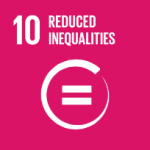
Equitable access to information, freedom of expression, freedom of association and assembly, and privacy are central to individuals’ independence. Libraries help to reduce inequality by providing safe, civic spaces open to all, in both urban and rural areas across the world. They foster community engagement and citizen participation through local programmes and partnerships with other civil society organisations and local governments. They are a lifeline to marginalised groups, who may struggle to access information, skills or support elsewhere.
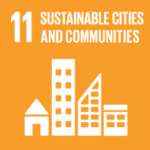
Libraries have an essential role in safeguarding and preserving invaluable documentary heritage, in all forms, for future generations. Culture strengthens local communities and supports the inclusive and sustainable development of cities – libraries are at the heart of initiatives to promote this. With targeted services to reach the most vulnerable groups, libraries provide a safe space for older people, offering opportunities to socialise and take part in cultural activities. They are also a welcoming space for immigrants, people experiencing homelessness, and refugees, who sometimes face many of the same challenges.

Libraries are sustainable institutions; they share resources within communities and across borders, to ensure that everyone has access to information. Libraries are the precursors of the new sharing economy, offering all kinds of materials for loan (not only books, music, movies, and all kinds of information resources, but also tools, musical instruments, appliances, and more), thus reducing the carbon footprint and the impact on the environment. Libraries offering access to 3D printers and digital manufacturing skills allow people to develop their own creativity using recycled materials. This helps to raise awareness to sustainable consumption and production.
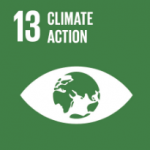
Libraries play a key role in providing access to reliable data, research and knowledge that supports informed research and public access to information about climate change. They ensure longterm access to environmental data and information for future generations through thorough preservation strategies that outlast the policies of individual governments. School and public libraries help raise awareness among younger generations about the critical and urgent need to protect our environment and to work together to mitigate and adapt to the effects of climate change.

Libraries support decision-making by preserving and giving access to data and information related to the sustainable use of oceans, seas and other water bodies, appropriate fishing practices, and effective water management.

Libraries foster research and help protect the earth’s ecosystems by offering open access to biodiversity data and literature. Botanical and forest libraries help raise awareness among younger generations about the need to respect and protect nature.
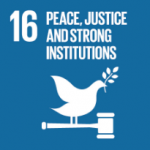
Libraries are a key source of information for the public. They are also equipped to teach and enable citizens to benefit from this open access. Libraries are a trusted information source, with skilled staff that help individuals, institutions and governments to communicate, organise, structure and use information in a meaningful way to promote development.
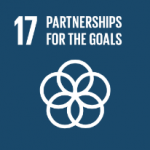
Libraries partner at all levels with local, regional and national civil society institutions, governments and organisations from private sectors to offer communitybased programmes and services that engage and empower citizens, in turn, strengthening societies.